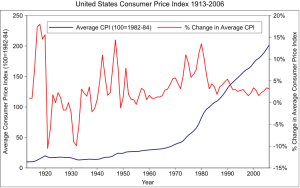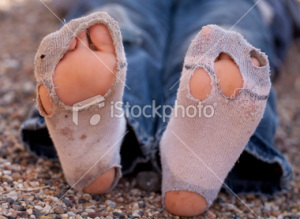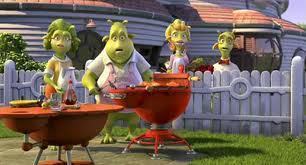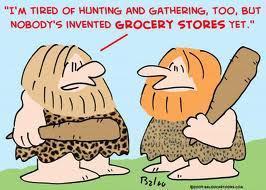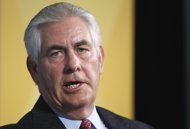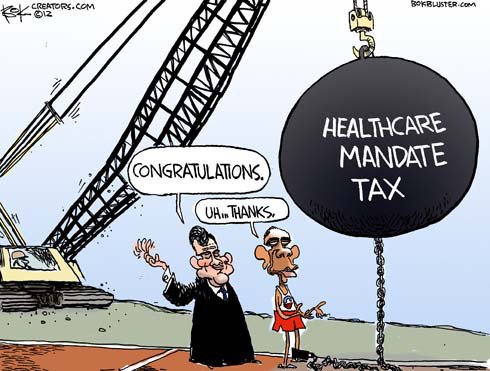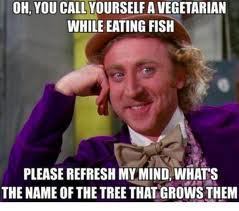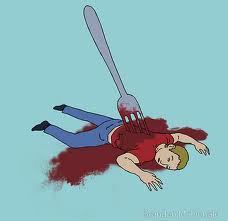Alon Shalev's Blog, page 36
July 10, 2012
The Best Damn Sock Story You’ll Ever Read – Tom Rossi
There are many reasons that the economists trusted by both Democratic and Republican administrations in our country (over the last several decades) have built a kind of dream world where numbers on calculators and the super-rich thrive while the rest of us slide, in starts and fits, into the poor house. One fun example is the Consumer Price Index (CPI) and what’s known as the “quality bias.”
I’m sure everyone realizes that the CPI has risen steadily over the last 60 years. The CPI is an indication of what consumers have to spend to obtain what the government considers sort of a representative basket of necessities such as food, clothing and several other commodities. Increases in the CPI show how much more it costs to live in the present time versus some time in the past.
But economists often argue that the CPI does not pay enough attention to changes in the quality of the items in that “basket.” In some cases, they are right. Take cars, for example: even the cheapest new car will almost certainly outlast a comparable car from the 1970′s, and it will most likely require a lot less maintenance and upkeep.
But economists and many policy makers assume that this applies to everything, and that simply is not the case. Take socks, for example. I have, over the past few years, bought two sets of Champion and one set of Adidas ankle length socks from Costco. The Champion socks changed, between my two purchases, and then were ditched by Costco in favor of the Adidas.
Costco usually has pretty good stuff. And while I’m always embarrassed for buying anything there instead of a local, “mom and pop” type store, I sometimes give in when a relative with a membership wants me to tag along.
The sock progression went like this: I bought the first set of Champion socks about 6 years ago. They sort of gradually deteriorated, much as I would expect socks to do. The last pair out of this set is still in rotation in my sock drawer. Since the first of them did get holes in the bottom of the heel after about 1 1/2 years, I bought some more, even though they had changed in style just a little. This second batch started to get holes within six months, but I still have one good pair left.
So, to make up for the new deficiency, I bought what Costco had to offer, the Adidas socks. These lasted a few months and then all formed holes, almost simultaneously, in much less than a year. However, one or two of them is still hanging on, with a really thin layer of material on the heel where a hole is trying to form.
This provides some evidence as to what has happened to the quality of socks over the past few years as manufacturing has evacuated the United States more and more and landed in China and other faraway nations, all while companies have searched high and low for ways to cut corners in materials and labor costs.
The socks I bought six years ago, the socks I bought three years ago, and the socks I bought one year ago have all basically, finally died in the last six months. That means that the first ones lasted over 5 years and the newer socks suck in comparison.
[image error]
And socks aren’t the only things. Gradually, almost all metal has been replaced by plastic. Almost all nuts and bolts have been replaces by plastic fasteners that get brittle and break and are impossible to replace. These days, you feel lucky if a small appliance like a toaster or a vacuum cleaner or a microwave last three years.
If you look at the ratings of various products on Amazon.com, you get the idea that 5 to 10 percent of new products are DOA – Dead On Arrival, and have to be sent back. And even though I’ve said that cars are the exception, there are still plenty of lemons that come off the lot and go right back into the shop.
The corporate model predictably leads to this. The automotive industry is one of the few where things still work the way they are supposed to work – if you make an inferior product, word spreads and you are punished. With so many other products, a brand enters an elite, dominant group, and then it hardly matters. You can put whatever crap out there you want to and people still buy it because there are so few choices and they all follow the same philosophies.
I recently bought some Hanes socks. We’ll see.
-Tom Rossi
___________________________________________________________________________
Tom Rossi is a commentator on politics and social issues. He is a Ph.D. student in International Sustainable Development, concentrating in natural resource and economic policy. Tom greatly enjoys a hearty debate, especially over a hearty pint of Guinness.
___________________________________________________________________________








July 9, 2012
The Economic Burden of Overweight
My plane was delayed. I sat exhausted in the airport in Texas, sipping a coffee. There was a line of customers forming into the McDonalds about 30 feet to my left. I began to doze. In the haze of fatigue everything blurs a bit. It suddenly felt as though I was on a different planet (I had just seen the movie Planet 51 with my boys). People weren’t green, but they were…well huge.
People walked past me in families or groups of four or six, almost all seriously overweight. I do not know where the line crosses between overweight and obese. Paul Zane Pilzner once defined it as people who no longer control their weight or lifestyle. This is not an anti-obesity post. I respect anyone who is taking steps to ensure their body is healthy, but i fear the repercussions that we all face.
I remember my first trips to the US. Admittedly, they were to California and the beach, surf, and multiple gyms beguiled me. Now not everyone in California is healthy by any means, but that seemed to be the perception.
Last Wednesday, I wrote the first part of a post suggesting that a sustainable planet needed changes in what we dish onto our plates and into our bodies. Today, I want to propose that there is a direct correlation between our health and economy.
The U.S. budget is just over $15 trillion (as is our debt apparently). In 2009, health care costs reached $2.5 trillion—nearly 17 percent of the GDP – and Paul Zane Pilzner suggests that there is a further $1 trillion dollars in the Wellness industry (‘health’ food, fitness, vitamins, and other therapies).
Gallup estimates that we lost over $153 million in lost productivity. But enough with the statistics. I don’t really think that anyone questions the fact that an unhealthy society cannot be an economically successful company. In fact, how many countries where disease and ill health are prevalent are doing well economically? On the contrary, if you look at the more successful nations (Scandinavian and Japan), they score highly on both the economic and health categories.
The question that I am stuck with, and I think at the core of Obamacare, is how much can the government intervene in how people choose to live their lives? There a re two points that I feel we need to realize:
1) When more that half the nation are overweight, it directly impacts everyone’s finances.
2) I don’t believe these people are making choices or feel that they can turn their lives around.
The battle against harmful transfats in fast food is an example of how we can make the necessary changes. I applaud First Lady Michelle Obama, who has taken on the fight against childhood obesity.
We have messed up the economy for our children and their children. Perhaps we can be more of service to them if we can educate them to live a healthy and productive lifestyle. And this just might right some economic wrongs we have inflicted on them as well.
——————————————————————————————————
Alon Shalev is the author of The Accidental Activist and A Gardener’s Tale. He is the Executive Director of the San Francisco Hillel Foundation, a non-profit that provides spiritual and social justice opportunities to Jewish students in the Bay Area. More on Alon Shalev at http://www.alonshalev.com/ and on Twitter (@alonshalevsf).

July 6, 2012
Real Men Don’t Cry
This is how we are brought up. Men used to wander around with a club, bringing down mammoths and dragging a female back to the cave. We have progressed a bit since then, what with vegetarianism and on-line dating, but there are certain mores that we don’t expect to cross.
I’ve done the ‘man’ things – play and watch sports, hit the gym, enjoy beer, fish, served in a combat unit, wooed a beautiful woman, and fathered two wonderful boys. I have a good job and plenty of friends.
Last month, my eldest son had his bar mitzvah and put on a flawless display of teaching, chanting, and schmoozing. He stood before our community and talked about the need to educate and not punish, to pursue social justice, and his desire to make the world a better place.
He was great and I am very proud of him. He worked very hard for two years to reach the level in which he could achieve this. Then it was time for his parents to bless him.
My wife won the toss (soccer reference) and chose to go first, knowing that I am confidant and used to standing before an audience and speaking into a microphone. Her blessing was modest, genuine and heartfelt, a reflection of her as a mother, wife and friend.
Over the hump, right? Wrong. I had written my blessing for him a while ago. I told him meaningful the project we had pursued together (we wrote the first Wycaan Master novel together) and then imparted how I saw him as our coming-of-age protagonist. And then I choked up…and cried. When I stopped and stole a sip of his water bottle, he leaned over and gave me a hug.
The first thing that went through my mind was shock. I hadn’t expected this, even though I have been known to cry at a Simpson’s episode (another story). I actually wasn’t embarrassed for myself: I was embarrassed for him. I struggled through and he still talks to me. Moreover, many people came up to me and gave me loving reinforcement.
But it was the comments from the men that I remember. There were some who admitted to shedding a tear themselves, others who said that I had done something they would like to be able to do. Some admitted they could never allow their mask to come down like that in public, or maybe any time.
In the struggle for equal rights between the sexes, we have seen a necessary push for women – equal opportunities, equal pay, and legal protections. All this stems from societal mores that favored men and allowed us to exercise a ‘power over’ that is unacceptable in a modern society.
But we, as men pay a price. Most of us still shoulder most of the burden of material provision, or at least feel we should even when our partners are better qualified and can pursue better jobs. We are mostly the warriors from defending our country to our family,
We all respected George Bush for shedding tears at 9/11 but we still expected him to go blow someone up as a consequence for us being attacked. President Obama’s status rose when we took out bin Laden. He did not gather the intelligence or undertake the mission, but in making the decision, he became a warrior chief.
 I have worked closely with my son over the past few years, preparing him for this rite-of-passage, and I will continue to work with him, preparing him to enter society as a man.
I have worked closely with my son over the past few years, preparing him for this rite-of-passage, and I will continue to work with him, preparing him to enter society as a man.
To ignore our role as the hunter/gatherer would be foolish. To ignore our rights as men to be sensitive and nurturing would be sad.
——————————————————————————————————
Alon Shalev is the author of The Accidental Activist and A Gardener’s Tale. He is the Executive Director of the San Francisco Hillel Foundation, a non-profit that provides spiritual and social justice opportunities to Jewish students in the Bay Area. More on Alon Shalev at http://www.alonshalev.com/ and on Twitter (@alonshalevsf).








July 5, 2012
ExxonMobil Says Yes to Global Warming – Roger Ingalls
Denier’s walls are crumbling down. It an astonishing speech, ExxonMobil’s CEO Rex Tillerson, admitted that the burning of fossil fuel is warming the planet. Like many others, I was totally floored when reading about his revelation. Perhaps he had a moment of weakness or maybe the perpetual lying finally got the better of him. More likely reputation played a role; let’s face it, the silly-science arguments used by fossil-energy companies are making them look stupid and lacking in credibility.
Can you imagine the look on the Koch brothers’ faces when they heard about Mr. Tillerson’s speech? I bet they soiled their pants from moaning so hard.
Tillerson wasn’t, by any means, apologetic or gracious. He called the public illiterate, the press lazy and indicated that the risk of spills and accidents were worth the reward. The biggest industry challenge, he said, “taking an illiterate public and try to help them understand why we can manage these risks.”
Interestingly, Tillerson appeared to ignore any discussion relating to remedial activities that would curb global warming. I suppose this is not a surprise. Slowing the release of greenhouse gasses would negatively impact ExxonMobil financially since more energy burn means more profits for them. The CEO believes we can manage in a hotter world. “We have spent our entire existence adapting. We’ll adapt,” he said. “It’s an engineering problem and there will be an engineering solution.”
I give Mr. Tillerson credit for stepping up and acknowledging the impact fossil fuels have on the environment but I also find it obscene that these Wall Street-massaged companies go from “denying” straight to “it’s too late, the damage is done so let’s adapt to our new climate”. Again, not a surprise, it’s all about lining pockets with gold but obscenely sinister nonetheless.
As much as I hate to agree with Tillerson, it is too late. Even if we drastically reduced carbon emissions today, temperatures are going to rise and so will sea levels for the next 200 to 300 years. Forget about green or sustainable economies, we need to pursue an adaptive economy that makes today’s disasters tomorrow’s normal.








July 4, 2012
The Real USA
I realize that I, like many of my fellow social commentators, spend a lot of time highlighting what is wrong in this country. This is important and even patriotic because it feeds from a desire to create a better and more just society. Today, however, should not be such a day. Allow met to share a post I wrote for a previous July 4th.
I am sitting in my local coffee shop and two men have just walked in together. They are deep in conversation and I see that one insists on paying for both coffees while the other protests and then gratefully accepts. I sense they exchange this ritual regularly. One man is black and the other is white. This shouldn’t stand out to me living in the People’s Republic of Berkeley, but it does.
These two men, though they walk straight and fluidly, are both old. They must be in their late 70′s, and I wouldn’t be surprised if they were in their 80′s. They grew up in a different time, another age, when this scene would have drawn everyone’s attention in the coffee shop. Now, I suspect, it is just me.
These two men lived through segregation, the civil rights movement, and the general drive by mainstream American to create a non-racist, civil society. I know there are extremists out there, and I am aware that black people still face institutional racism. But when spotlighted, there is a strong consensus that such behavior is unacceptable.
I am writing this post a couple of days before the 4th of July. I am still not a citizen of the US, but I feel a part of this society because I believe in what it stands for: freedom and democracy for all. I know it is not perfect, but we are moving forward. I know that not everyone is on board, or swimming in the same direction, but I believe there is a dogged majority who embrace these principles. Jewish proverbs teach us that “It is not for us to finish the task, but neither are we free to desist from it.”

My blog often criticizes members of our society, organizations and politicians. But today, July 4th, while we fire up the barbeque and chill the bud, lets focus on what we share in common.
I’ll leave you with Janis Ian who spells it out in black and white. Happy 4th everyone.
——————————————————————————————————
Alon Shalev is the author of The Accidental Activist and A Gardener’s Tale. He is the Executive Director of the San Francisco Hillel Foundation, a non-profit that provides spiritual and social justice opportunities to Jewish students in the Bay Area. More on Alon Shalev at http://www.alonshalev.com/ and on Twitter (@alonshalevsf).








July 3, 2012
Is Justice Roberts a Friend to Health Care? – Tom Rossi
Writers, pundits, television reporters, everyone in any kind of media, even those thought of as “liberal,” have all taken Justice John Roberts’ apparent break from the conservative cabal on the Supreme Court at face value. I’m shocked at the lack of conspiracy theories on this and, frankly, I’m bored.
The term “conspiracy theory” is used to instantly discredit an idea by ridiculing it as crackpot-ish. America is in love with the image of the lone, crazed individual, just like it’s in love with rugged individualism.
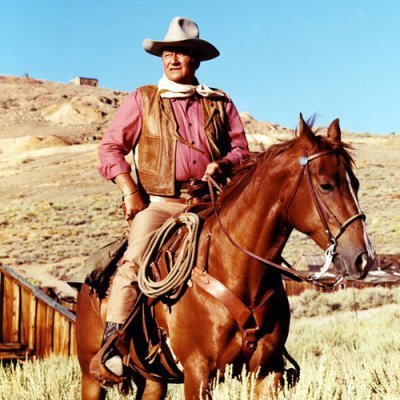
Fiction, not reality!
And we would love to think that Justice Roberts somehow and suddenly saw the light of reason, that he realized the importance of health care availability or, as Robert Reich said, the importance of the court’s public image. But Citizens United and Justice Alito’s subsequent mouthed denial of any reversal of precedent (at President Obama’s State of the Union Address) make those explanations seem unlikely.

There has been plenty of evidence that Justice Roberts and the other, even more hard-line right-wing ideologues on the Supreme Court bench have taken their marching orders from conservative strategists. In the Citizens United decision, the conservative members of the court took the opportunity to form a new doctrine that far overreached the case that had been presented to it.
Let me be clear about Citizens United and the Supreme Court – the aggravating thing wasn’t so much that the court found for what I or “liberals” would consider the “wrong side.” It was that the conservative wing of the court took a very narrow case with specific issues, and generalized the ruling in an expansive and even illogical way. It was as if they were called upon to rule on whether a runner had beaten the throw to first base and was therefore safe, but they also ruled that umpires could fly kites during the game and that the fans could wear blue on Tuesdays but not Wednesdays.
There is really no explanation for this other than that these justices were granting an unpublished (but obvious) corporate “wish list.” And even though I’ve semi-conflated “conservatives” and corporations, this, along with the outrage of everyday, non-super-wealthy conservatives, showed exactly who or what was being served.
This leads me to wonder about this mysterious decision on so-called “Obamacare.” Could this have been a strategy by conservatives? Could this have been an attempt to tip the scales in favor of Mitt Romney and other conservatives (who all vow to eliminate Obamacare) running for congress in November, 2012?
The following method is somewhat teleological, but let’s try to figure out how such a strategy would best be implemented in this case. It wouldn’t be shrewd to have all the conservative justices side with the legitimacy of Obamacare, that would give it real credibility. Much better to have one wildcat, one rogue justice who split, leaving conservatives in their cherished victim role.
And, in fact, it was Justice Roberts who was to write the majority opinion for this case. How different might it have been if Justice Sotomayor had written it? Or Justice Breyer? Roberts allowed the central principle of Obamacare to stand, the individual mandate, by calling it that dirtiest of words… a tax. In fact, he implied that it was a tax used as a punishment.
Within minutes, the Republicans, Senators, Representatives, governors, and the rare Republican bathroom attendants were crying: “Tax!” “Tax on the middle class!” I can’t say if this was prepared before-hand, or if it was deliberately orchestrated, but it was like the freakin’ Mormon Tabernacle Choir – perfect unison.
I don’t know what really happened inside or outside Justice Roberts’ round little head, but given what he and his court have done so far – followed an astonishingly blatant, conservative activist agenda while decimating the rule of law, I’m suspicious.
-Tom Rossi
___________________________________________________________________________
Tom Rossi is a commentator on politics and social issues. He is a Ph.D. student in International Sustainable Development, concentrating in natural resource and economic policy. Tom greatly enjoys a hearty debate, especially over a hearty pint of Guinness.
___________________________________________________________________________








July 2, 2012
Early July 4th Post – The Right To Fly The Flag
Larry Murphree is a US Army war veteran and taxpaying citizen. But his Homeowner’s Association decided he had stepped out of line and fined him, with the fine growing every day. This problematic troublemaker had the audacity to fly the U.S. flag in a flowerpot outside his home – in full view of the children!!! Not only that, but he was banned from the neighborhood clubhouse.
In true American fashion, Murphree filed a lawsuit against the HOA, ”When I saw state and federal law was on my side, I knew it should be taken care of,” he said.
The HOA saw the errors of its way and agreed to pay Murphree’s attorney fees, restore his rights at the clubhouse, and most importantly… fly his flag.
“I can display the American flag, which is exactly and the only thing I want,” he said.
When another man was told by his Homeowners Association that he could not fly the American Flag in his yard, he chose a different response:

God Bless America! Land of the Free: Home of the Creative.
Happy pre-July 4th to all!
——————————————————————————————————
Alon Shalev is the author of The Accidental Activist and A Gardener’s Tale. He is the Executive Director of the San Francisco Hillel Foundation, a non-profit that provides spiritual and social justice opportunities to Jewish students in the Bay Area. More on Alon Shalev at http://www.alonshalev.com/ and on Twitter (@alonshalevsf).

June 29, 2012
Save a Cow, Save the Planet
On Monday, I suggested that obesity and wrong food production is the core to our sinking economy. It seems to have resonated with many people and I feel a need to explain myself. In the first of two articles, I want to focus first on the effects on our planet and then on our economy.
However, allow me to begin with a disclaimer: While I was vegetarian or vegan for most of my life, I am not now. It is something I struggle with regarding my own health and have been eating fish for a few years. I have also been known to eat rather than cry fowl.
It’s not just the remains of the animal dead on our plates, but the energy and resources involved putting them there. As John Vidal, a reporter for The Observer in England, and the author of the McLibel case that The Accidental Activist is based upon, once said: “It’s time to think of waste as well as taste.”
When we look for major ways to lower the impact we are having on the earth, where to cut energy, and become sustainable, eating less meat seems to be one of the clearest and most attainable. Note that I said “eating less meat” and not becoming vegetarians. Perhaps one of the biggest mistakes of the veggie movement has been this all-or-nothing approach, meaning that those not ready to make such a radical switch are likely to dismiss it.
But there is a more telling reason to cut meat consumption. With a billion hungry people and three billion more mouths to feed in the next few decades, this argument is far bigger than being nice to animals. People are dying of starvation, our planet is exhausting its ability to feed us, and we have the knowledge and technology already to turn this around.
If we really want to reduce the human impact on the environment, the simplest and cheapest thing anyone can do is to eat less meat. Vidal says: “Behind most of the joints of beef or chicken on our plates is a phenomenally wasteful, land- and energy-hungry system of farming that devastates forests, pollutes oceans, rivers, seas and air, depends on oil and coal, and is significantly responsible for climate change. The way we breed animals is now recognized by the UN, scientists, economists and politicians as giving rise to many interlinked human and ecological problems, but with 1 billion people already not having enough to eat and 3 billion more mouths to feed within 50 years, the urgency to rethink our relationship with animals is extreme.”

Millions of hectares of trees have been felled for cattle ranching in the Amazon. Photograph: Paulo Whitaker/Reuters
Vidal lists 10 environmental concerns that curbing the meat industry would help turn the situation around.
1. Global Warming
2. Land Use
3. Water Supplies
4. Deforestation
5. Waste Management and Harmful Chemicals
6. Ocean pollution
7. Air Pollution
8. Pathogens from animals making humans ill.
9. Depleting the Oil Supply
10. Other Costs – This tenth point is what I will focus on in my next post. There is so much environmental information available now, one needs to make a conscientious effort remain uninformed!
The average American consumes about 200 pounds of meat a year – that is about 1/2 lb a day assuming that everyone eats meat. We don’t. About 7.3 million Americans don’t eat meat at all, while just fewer than 23 million eat a vegetarian-inclined diet. I am not sure what this means, but I doubt they eat vegetarians who are known to be lean and bad tempered when someone sticks a fork in them.
How does this effect our economy? That’s for another post.
——————————————————————————————————
Alon Shalev is the author of The Accidental Activist and A Gardener’s Tale. He is the Executive Director of the San Francisco Hillel Foundation, a non-profit that provides spiritual and social justice opportunities to Jewish students in the Bay Area. More on Alon Shalev at http://www.alonshalev.com/ and on Twitter (@alonshalevsf).
June 28, 2012
The New Normal, Abnormal Weather – Roger Ingalls
I’ve been following weather related news for the past few months and it appears we’ve hit the point of obviousness. It’s painfully clear to most open-minded Americans and the International community that something is amiss. It’s not unusual to have freakish weather in some regions of the world during a defined period, but it’s extremely abnormal for almost the entire globe to experience unusual climate events simultaneously and this is what we’re now seeing.
Research weather reports from China, Europe, North & South America, Australia, India, Africa, Korea, Russia or anywhere and you’ll see change and concern. Below are some reports and articles picked up yesterday.
Today’s post has no conclusion, no solution and places no blame; it’s just meant to point out the obvious.
GRAINS-Corn extends 2-day gain to 10 pct on Midwest drought
Crops to keep baking in dry heat for 2 weeks
Grower: Door County cherry crop has all but failed
Counties Asked to Begin Damage Assessments for Livestock, Crops
Options for crops damaged by hail
Global warming will push up sea level
Global Warming Seen Lifting California Sea Level a Foot by 2030
Global warming creates 600-mile flood ‘hot spot’ along East Coast
Hurricane Debby sets records: Early-season storm a sign of things to come?
Texas grid expects to set June power record again
Record heat hampers containment of wildfires
Both Koreas suffering worst drought in a century
As drought grips Great Plains, Wyo. ranchers look to rent pasture in North Dakota for cattle
Drought help sought for farmers, ranchers
Severe drought continues in the area
Hot weather sets records in the Dakotas
Unprecedented Drought May Have Already Led To 20,000 Deaths In North Korea Since April
Drought leaves 800,000 people thirsty in China

June 27, 2012
Why I Became a Vegetarian
 Reblogged from The Midwest Maven:
Reblogged from The Midwest Maven:
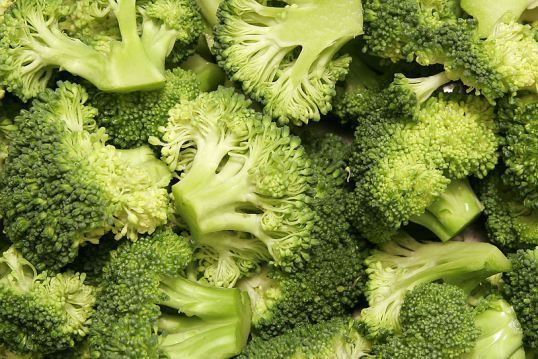


A little more than two years ago, in a candlelit restaurant in Vienna, Austria, I sliced into a hunk of chicken cordon bleu, and declared defiantly to Mike, “I could never be a vegetarian.”
I remember that statement all-too-clearly, as I tend to do with the sweeping generalizations that I sometimes make and inevitably have to retract. Later that spring of 2010, Mike and I returned to Chicago after six weeks of…
I have been grappling with the diet issue and will post a couple of times on this topic over the next week. I thought this was a great article to kick-off.

